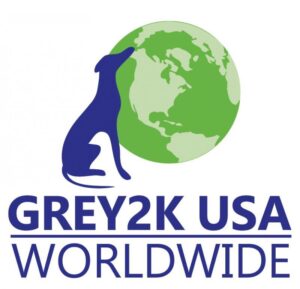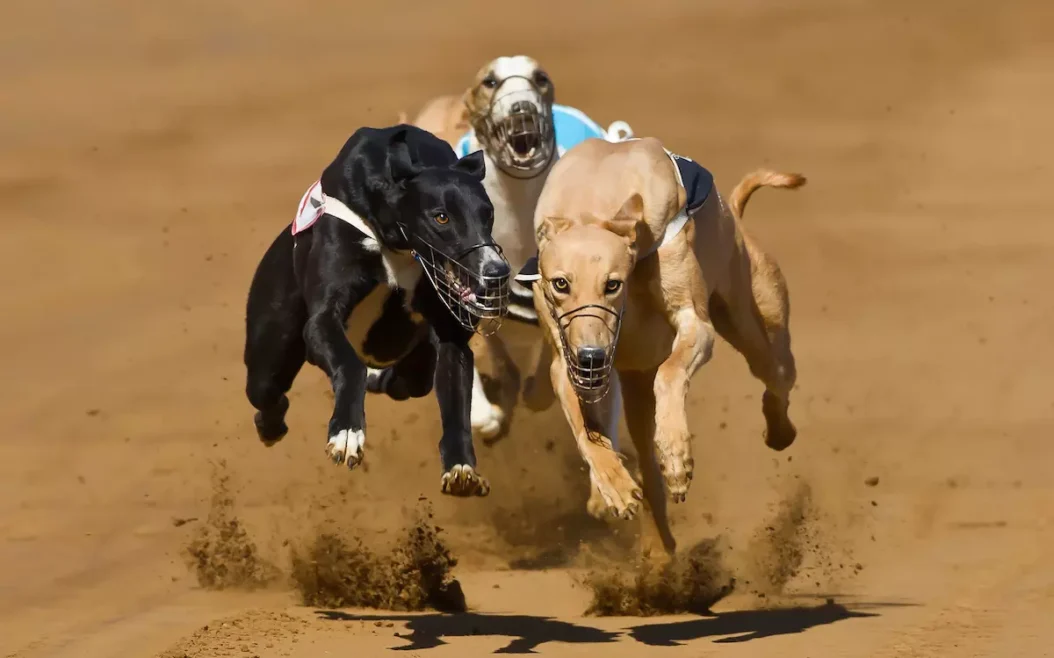Press Release



- For Immediate Release:
- Contact:
- Wayne Pacelle, president
- 202-420-0446
- Email Wayne here
Animal Welfare Groups Aim to Add New Greyhound Protection Legislation to Farm Bill
Bill Comes in Wake of Mass Greyhound Track Closures, Concerns About Foreign Dog Track Involvement in U.S. Economy
Washington, D.C. — Animal Wellness Action and GREY2K USA Worldwide applauded Reps. Salud Carbajal, D-Calif., Zach Nunn, R-Iowa, Tony Cárdenas, D-Calif., Nancy Mace, R-S.C., Lori Chavez-DeRemer, R-Oregon and Don Davis, D-N.C., for introducing legislation to phase out greyhound racing. The Greyhound Protection Act, which amends the Animal Welfare Act, also outlaws remote gambling on dog races, and prevents greyhounds from being put into interstate or international commerce for the purpose of greyhound racing. The bill is H.R. 3894.
“Greyhound racing is cruel from start to finish,” said Christine A. Dorchak, president and general counsel of GREY2K USA Worldwide. “The Greyhound Protection Act will give greyhounds the second chance they deserve and put a rightful end to over 100 years of callous exploitation. As dog racing fades in the United States, it is moving across the border and the criminality of greyhound racing is particularly attractive to cartel affiliated groups trying to capitalize on it.”
Once the sixth largest spectator sport in the United States, greyhound racing happens now just at two tracks in West Virginia, both owned by Delaware North, a New York-based gambling and food-service company. Greyhound racing is illegal in 42 states, and remote gambling on dog races has recently been prohibited in Kansas, Massachusetts and Colorado. A generation ago, there were 60 tracks in the United States, so the decline of racing has been precipitous.

“As live greyhound racing winds down in the United States, we must prevent simulcasting of greyhound races from Mexico, and the export of racing greyhounds to China, so American gamblers do not unwittingly prop up animal cruelty in overseas jurisdictions,” said Wayne Pacelle, president of Animal Wellness Action. “The American public has already withdrawn its dollars from the American industry and there’s no reason to give foreign-owned companies and cartels a supply of greyhounds or a simulcasting foothold in the homeland.”
Dogs used for racing are kept confined in stacked metal cages for up to 23 hours a day. When let out to race, they suffer serious injuries including broken legs and backs, crushed skulls, and paralysis. Greyhound breeders in Kansas, Oklahoma, Texas and Colorado have been documented killing rabbits in cruel “live lure” training exercises.
Foreign dog tracks are also working to capitalize on the end of greyhound racing in the U.S. by appealing to American gamblers for the first time. Thousands of greyhounds are killed in foreign jurisdictions. The animal protection community is particularly concerned about the involvement of Tijuana dog track Agua Caliente. There are no animal welfare standards at Caliente, and its owner, Jorge Hank Rhon, has previously been linked to drug cartels by U.S. authorities.
“Greyhound racing is a relic of an era long-past in the United States. It is cruel, inhumane, and thoroughly unpopular with the American public – which is why nearly every state in the union has already voted to outlaw it,” said Congressman Carbajal, the lead author of H.R. 3894. “As a lifelong friend to animals and a proud member of the Animal Protection Caucus, I’m proud to stand with colleagues from both sides of the aisle and states from across our nation to introduce legislation that will finally put an end to this brutal practice and promote the universal welfare of our greyhounds.”
“Iowa has paved the way to end the cruel practice of racing greyhound. Across the country, we still have work to do. The bipartisan Greyhound Protection Act will end the exploitation of dogs by banning this act altogether,” said Rep. Nunn.
The Greyhound Protection Act represents an important stride towards putting an end to the cruel and outdated practice of greyhound racing,” noted Rep. Nancy Mace. “These creatures deserve better than to be subjected to the risks and abuses inherent in this industry. By supporting this legislation, we are taking a stand for animal welfare and sending a clear message of valuing compassion and respect for all living beings. It is time to shift our focus towards promoting responsible and humane treatment of animals, ensuring they are no longer exploited for entertainment purposes.”
“The Greyhound Protection Act puts an end to the unnecessary, cruel, and risky practice of greyhound racing. For far too long, track operators have exploited animals for gaming dollars. To stop these inhumane and criminal practices, we must ban greyhound racing once and for all.” said Congressman Don Davis.
Since 2020, dog tracks have closed in Alabama, Arkansas, Iowa, and Texas. Those announcements came not long after Florida voters in 2018 approved Amendment 13, which banned all live racing in the state by the end of 2020. Floridians approved the measure by a landslide vote of 69% to 31%, even though the vote took place in the industry’s redoubt. Just prior to the launch of the ballot measure campaign, Florida had 12 of the 18 operating tracks in the United States.
The company that owns the final two dog tracks, Delaware North, is neutral on the Greyhound Protection Act and supports free-market legislation that would allow its casinos to operate free of dog racing. However, West Virginia law currently mandates that greyhound racing continue as a condition of offering other forms of gambling. The state also requires annual subsidy payments of $17 million to owners of racing dogs. Delaware North is a privately held company based in Buffalo and built around gambling and food service. In 2022 Delaware North did shut down its greyhound racing venue at the Southland Casino Hotel in West Memphis, Ark., signaling the company’s view that greyhound racing will not be a future part of its business empire.
The Greyhound Protection Act has been endorsed by more than 250 animal protection groups, local animal shelters, anti-gambling organizations, international NGOs and greyhound adoption groups. In the last Congress, a nearly identical bill won the support of 105 cosponsors. Notable endorsers include Stop Predatory Gambling, the Federation of Humane Organizations of West Virginia, Eastwood Ranch Rescue, the National Greyhound Adoption Program, the National Humane Education Society and Best Friends Animal Society.
The federal government has authority on this subject because dogs are bred and transported across state lines for racing and races are broadcast to numerous states for simulcast gambling. The bill amends the Animal Welfare Act to achieve its purposes of ending greyhound racing.
Animal Wellness Action is a Washington, D.C.-based 501(c)(4) whose mission is to help animals by promoting laws and regulations at federal, state and local levels that forbid cruelty to all animals. The group also works to enforce existing anti-cruelty and wildlife protection laws. Animal Wellness Action believes helping animals helps us all. Twitter: @AWAction_News
Formed in February of 2001, GREY2K USA Worldwide is the largest greyhound protection organization in the United States with more than 300,000 supporters. As a non-profit 501(c)4 organization, the group works to pass stronger greyhound protection laws and end the cruelty of dog racing on both national and international levels. GREY2K USA Worldwide also promotes the rescue and adoption of greyhounds across the globe. For more information, go to www.GREY2KUSA.org or visit GREY2K USA Worldwide on Facebook, Twitter or Instagra
Center for a Humane Economy is a Washington, D.C.-based 501(c)(3) whose mission is to help animals by helping forge a more humane economic order. The first organization of its kind in the animal protection movement, the Center encourages businesses to honor their social responsibilities in a culture where consumers, investors, and other key stakeholders abhor cruelty and the degradation of the environment and embrace innovation as a means of eliminating both. The Center believes helping animals helps us all. Twitter: @TheHumaneCenter